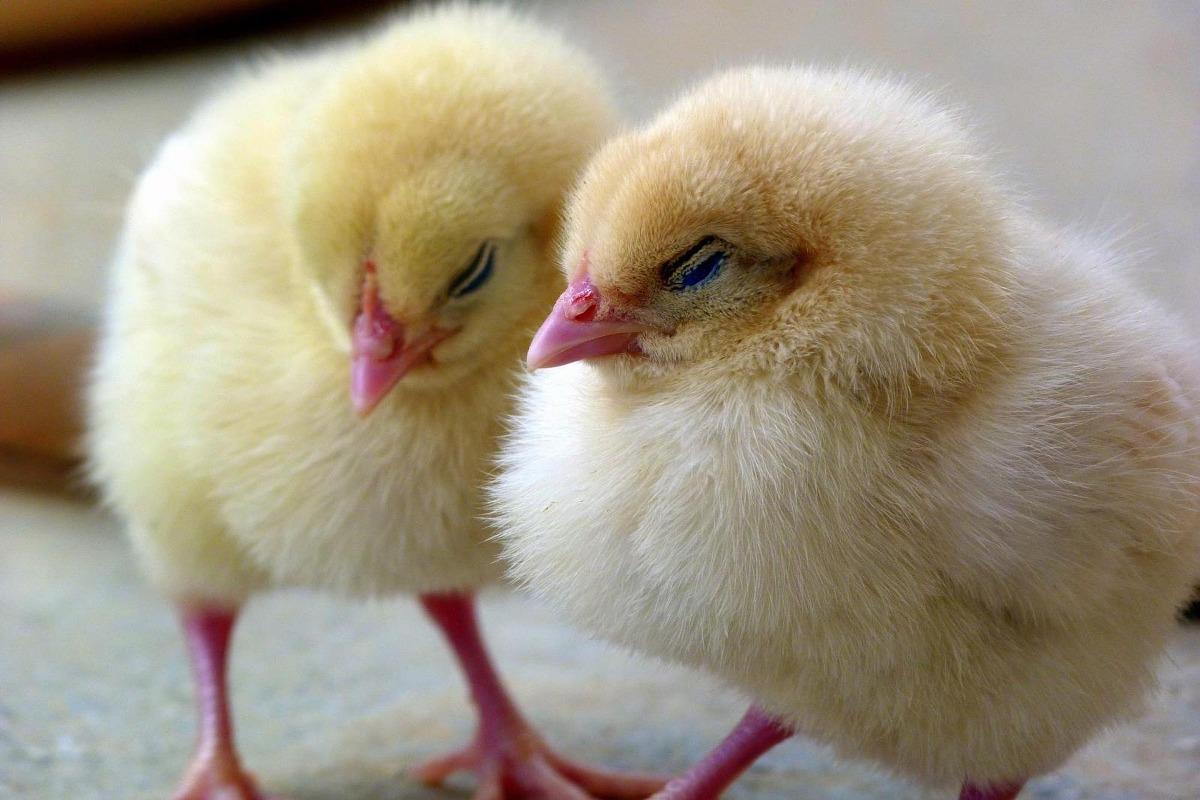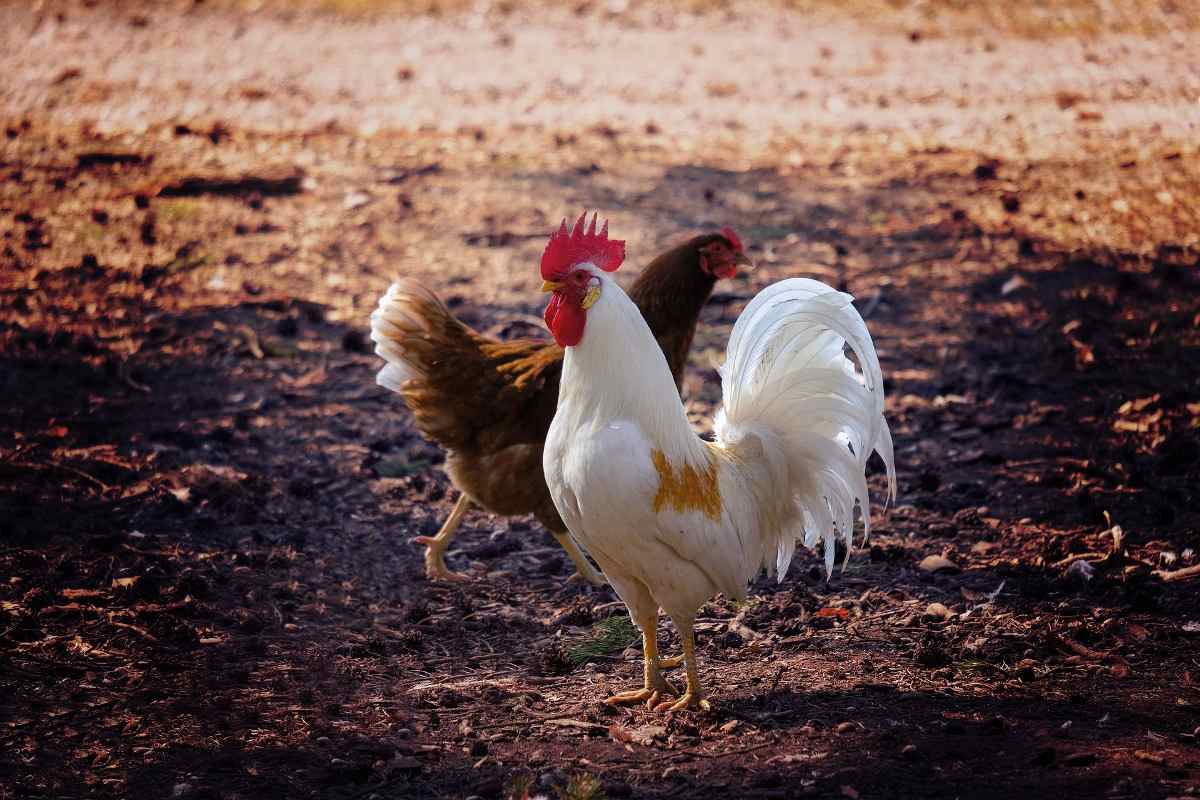Introduction to Poultry Diseases
Today let us discuss Poultry Diseases, Causes, Symptoms, and their prevention methods. There are various types of poultry diseases that seriously affect poultry farming profits. The reasons for the diseases are poor sanitation and management, malnutrition, etc. All most all the diseases are identified by general or usual physical conditions. For a successful poultry farming, you need to keep safe from all types of diseases. Diseases seriously affect the meat and egg production are;
Read Poultry Questions and Answers.
Most Common Poultry Diseases
New Castle Disease:
It is a viral disease that causes respiratory, nervous disorders in chickens. This disease spreads from one to another easily. This disease mainly affects in spring and winter seasons. Young birds get affected soon than the adult ones.
- Symptoms:
- The affected chicken stays away from groups and rests in a corner of the house.
- The birds sometimes become irritated and die making different sounds.
- Byspnoea, paralysis, mucus from nose, yellow or white colored closet, low egg production, poppy eyes, infected bird walks very slowly.
- Lobe turns to black color.
- An Egg laid by infected plants is thin-shelled, soft, and distorted.
- Prevention and Treatment: Baby birds infected with this disease will die and infected old birds can recover and not carriers afterward. Chances for a bird to recover from this disease is very less.

Fowl Pox:
It is a viral disease in hens, spreads through contaminated chickens, mosquitoes, and air.
- Symptoms: Infected chicken has white spots on its skin. Lesions on the combs, and ulcers around the mouth. The infected chicken stops laying, make a notice when you observe the chicken behaves improperly.
- Treatments: There are many prevention and treatment methods for this disease. Feed the infected chickens with soft food and place the infected chicken in a warm and dry place to speed up the recovery. Good sanitation and nutritious food will prevent the chicken from viral diseases.
There are preventive vaccines for Fowl Fox disease, consult the veterinarian for vaccination schedules.
Botulism:
It is a bacterial disease caused due to the ingestion of a toxin by a bacterium (Clostridium botulinum) which lives on dead animals or rotten vegetable matter.
- Symptoms: the infected chicken becomes drowsy, weak even feel reluctant to move. The head of the birds will droop and rests on the ground with eyes closed and drooped wings. Sometimes they go into a coma and die. They suffer from paralysis of the neck and limbs; the neck can be coiled overdue to paralysis. And feathers will get very weak and they can be plucked easily.
- Treatment: Dead birds are the main source of this disease, so removing the dead birds daily. Keep the birdhouse clean with good ventilation. Provide nutritious feed and freshwater for the chickens. Don’t supply stagnated or pooled water to the chickens. Feed the chicken in a clean container. Don’t feed them on the ground or uncleaned bowl.
Infected birds should be kept isolated and treated specially with good care. Vaccines and antibiotics are available to prevent and treat this disease. Consult the veterinarian for necessary treatment. Under appropriate treatment, a bird can recover within 48 hours.
Fowl Cholera:
Fowl cholera is a highly contagious disease that affects the chickens. It is very dangerous can lead to the death of birds.
- Symptoms: The symptoms are high fever, skin discoloration, loss of appetite, ruffled and weak feathers, dehydration, mucus from the mouth, and breathing problems.
- Prevention and Treatment: You can prevent spreading this disease by controlling the people, vehicle, and equipment entry into the birdhouse. Clean the birdhouse and feed equipment with disinfectant. Maintaining a rodent control program in birdhouse can prevent fowl cholera. Keep the domestic animals away from the flock. Purchase healthy poultry from a reputed, disease-free source.
Medications for this disease can reduce the mortality rate. Consult the veterinarian for the vaccination schedule.
Infectious Bronchitis:
It is a viral disease that affects birds. It is an acute and highly contagious respiratory disease.
- Symptoms: the infected chickens will start sneezing, snoring, and coughing. And their eyes and nose will be watery. The infected chicken will stop laying eggs.
- Prevention and Treatment: preventive vaccines are available to this stop the disease from affecting the chickens. Consult a veterinarian for the vaccination schedule. If you observe any signs of this disease in chickens, prepare a warm and dry place for an infected chicken to recoup. And feed them with antibiotics and nutritious food with herbs. Provide fresh water and maintain proper sanitation.
Infectious Coryza:
This is a serious bacterial disease in chickens, which affects the respiratory system of the chickens. This disease mainly spreads through contaminated water, other contaminated birds, and contaminated.
- Symptoms: Depression, water flows from the nose and eyes, and the infected birds’ heads get swollen. The eyes will swell shut and combs will swell. They stop laying eggs and will have moisture down the wings.
- Treatment and Prevention: There is no preventive vaccine for this disease. Good sanitation and providing fresh food and water are the best preventive measure to control this disease. Once you find chicken with this disease, they should be put down, if no they will spread this among the flock. Discard the body properly so that no other chicken gets infected.
Marek’s Disease: Marek’s disease is highly contagious, which affects the nervous system and cause tumors in the internal organs. This disease mainly attacks the chicken under age 20 weeks.
- Symptoms: This disease has several phases, that attack different parts of the bird. At the early stages, the infected bird will display paralysis of the legs, wings, and necks. Birds also show Depression, diarrhea, anemia, dehydration, loss of weight, eye lesions, and loss of eyesight. At the later stages, the bird develops internal tumors develop. Grayish-white tumors appear on the ovaries, kidneys, hearts, and other organs.
- Prevention and Treatment: Vaccinations are available for this disease. Vaccination should be given within the first day of life. Purchase the chicks and pullets from a reputed client with proof of vaccination. Consult the veterinarian for vaccination details and vaccination should be given before the disease infects birds.
Good hygiene practices, like regular cleaning and disinfection of housing facilities, will prevent this disease to some extent. Provide nutritious food, implement parasite control measures, maintain a clean environment are the best farming practices. Poor farming will increase the stress in birds which leads to the outbreak.
Mushy Chick: It is a bacterial disease that mainly affects the newly hatched chicks.
- Symptoms: the infected chick has an enlarged midsection, enlarged, inflamed, and blue-tinted. The infected chicken will have an unpleasant smell and will be very weak and feels drowsy.
- Treatment and Prevention: This bacterial disease has no vaccine, consult the veterinarian for medication. This disease mainly transmitted from chick to chick, or from a dirty surface. Many antibiotics work well when given at an appropriate time. The infected chicken should be treated separately until it gets normal. Separate the chicken as soon as you see any of above the symptoms.
Pullorum: It is a fatal disease in baby chicken. The chickens of age one day to two weeks are mainly affected by this disease. It also affects adult chicken, but they recover fast. This disease spreads through eggs and closet.

- Symptoms: The baby chickens will inside the egg if the disease infected through eggs. The infected chicken will be drowsy and weak. The chicken will suffer dyspnea, breathing problem, loss of appetite, dehydration, diarrhea, and make different noises. The low rate of egg production and closet turns green. The infected chicken gets closer to each other under the brooder.
- Disease and prevention: Inspect the chicken daily and remove the infected one. Buy the baby chickens, which are disease-free. Don’t make infected chicken produce eggs. Maintain cleanliness in the incubator and hatchery. Consult the veterinarian for medication. Supply fresh food and water in clean equipment for baby chickens.
Chicken Cholera:
Chicken cholera is a fatal contagious disease. The birds of any age can be affected by this disease. This disease spreads through affected birds, polluted feed, or water and used equipment. Cool climates and insects spread this disease
- Symptoms: if the infestation is severe, the chicken dies suddenly, closets turn yellow or green, High fever, loss of movement, loss of appetite, dehydration, swollen eye and mouth, watery nose, eyes and mouth, and chicken may die within 2 to 3 days. The chicken head crest, lobe changes its color, feathers get gross, and low rate of egg production.
- Prevention and Treatment: Vaccination is available for this disease. Consult the veterinarian for the vaccination schedule. The infected chicken should be separated from the flock and treated separately. Clean the birdhouse, litter, and equipment are with disinfectant regularly.
Avian Influenza:
It is most commonly known as bird flu. It is a highly contagious disease in birds.
- Symptoms: Depression, water flows from eyes, cough, sneezing, rales, breathing problems, diarrhea, and soft eggs. The infected chicken has swollen head, comb, wattles, legs, and hocks. The chicken has discoloration of combs and eggs. You can observe the low egg production rate.
- Treatment and Prevention: Implementing the on-farm biosecurity measure can prevent the spread of this disease among the birds. In the case of free-range farming, the risk of this disease is high. Vaccination is not really necessary, but you can consult the veterinarian for the vaccination schedule. Good sanitation with good food and water is the best method to prevent this disease.
Bumblefoot:
This disease begins when the foot gets wounded. The wound gets infected and the foot gets swollen. In severe cases, complete leg swells up. The best treatment is to consult the veterinarian, they cure it by performing surgery.
It is impossible to control this disease, just keep a close eye on the chicken feet, in case any wound wash it with disinfectant.
Air Sac Disease: this is a viral disease that can be treated quickly and effectively.
- Symptoms: Weak chicken, Poor laying, coughing, sneezing, respiratory problems, swollen joints, and in severe conditions it may lead to the death of the animal.
- Treatment: vaccination is available for this disease, and many antibiotics are available to treat this disease effectively. Regular inspection of chicks is necessary if you observe any of these symptoms they can be treated quickly.
Clean environment, fresh food, and nutritious food, and following proper vaccination schedule will keep your poultry farm in profits with minimal poultry diseases.
That’s all folks about poultry diseases and control measures. You might be interested in Okra Seed Germination, Time, Temperature, Process.
Please send me full details of common Poultry diseases and defects with HD pictures